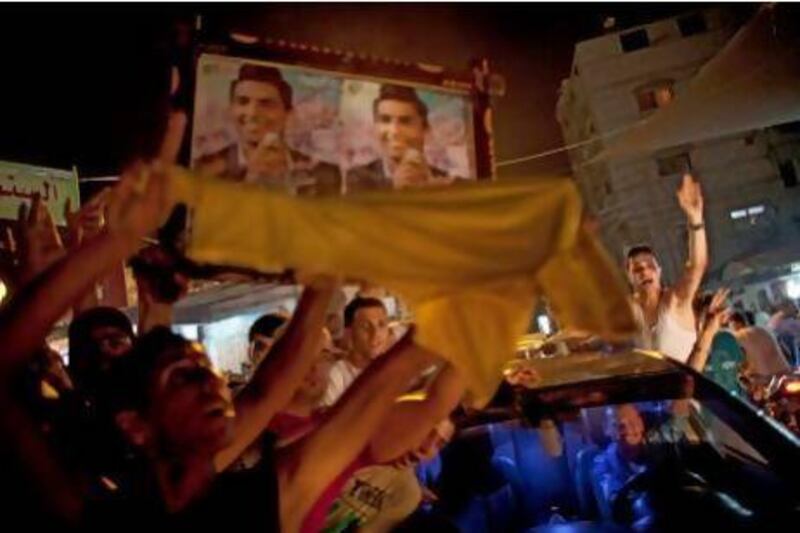Despite, or perhaps because of, Syria's horrific war, Arab Idol was watched pretty avidly - at least in the areas with enough electricity to run a television.
"The strange thing is that half of Syria is destroying itself and the other is watching Arab Idol," said a 35-year-old shopkeeper from the battle-ravaged southern suburbs of Damascus.
"I personally don't care about the competition but people here are bored of news and political talk shows, so they are looking for space of fun and hope," he said.
In Damascus, the appearance of Syria's Farah Youssef among the 10 Arab Idol finalists was accompanied by a cocktail of pride, conspiracy theory, sectarianism, regime prodding and, a brief, illusory moment of escape from her country's unfolding tragedy.
Beaten into second place by Gaza's Mohammed Assaf, Farah had the support of many Syrians, but not all. The country's Palestinian community by and large seemed to be rooting for the eventual winner.
Rami, a 28-year-old Syrian Palestinian, watched the final from the home his family now live in the Damascus neighbourhood of Barzeh, the scene of recent fighting, having fled another conflict-hit part of the capital.
"I feel the people want a change and to get out from the daily news of Syria's civil war, with all the killing, the injured and destruction," he said.
A keen fan of the show, he said he felt guilty for enjoying it.
"It's good to have a break from the routine but sometimes it is shameful to forget the bloodshed and the numbers of people being killed," he said.
Syrian support broadly swung behind Farah after Abdul Karim Hamdan, another Syrian contestant, crashed out of the contest weeks ago.
Therein lies the sectarian element: a Sunni, from Aleppo, Abdul had commanded the support of Syria's Sunni viewers. "The good thing is that, pro-Assad, anti-Assad and independent Syrians agreed on Farah Youssef, who is Alawite from Tartous province," said a fan of the programme in Damascus.
He noted Farah's sect without prompting, despite little being publicised about her background.
These days every Syrian seems to know, almost magically, who is from what city and from what sect.
"Anti-Assad fans of Arab Idol were supporting Abdul Karim more than Farah because he is Sunni, but after he was knocked out then all Syrians were unified on Farah Youssef," the Damascene fan said, adding that the show was "not a political issue".
But everything is political in Syria and the regime could not resist trying to score a victory via Farah, with the two big telecoms firms, MTN and Syriatel - nominally private companies but accustomed to spreading regime propaganda by SMS - sending out messages urging people to vote for her.
Opposition activists despise the mobile phone companies for their close association with the president, Bashar Al Assad, and his regime.
Farah's loss was also grist to Syria's burgeoning conspiracy-theory mill. With the country locked in a proxy war pitting its regime, Iran, Hizbollah and Russia against the West and Sunni Arab states, supporters of Mr Al Assad saw Saudi Arabian hands behind the result.
"I think Farah lost because the show is run by Saudi and it doesn't want to let a Syrian win," said a 17-year-old student in Damascus. "Syria is bigger than this TV show. The Syrian flag will always be flying."
The brief moment of escape for Syrians viewers of Arab Idol has passed. Now, back to the war.
psands@thenational.ae





